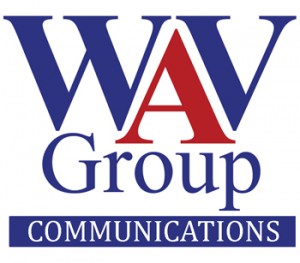 One thing that most executives are not trained for is talking to reporters. Some have a natural talent for it, but most learn the hard way. Having spent more than 25 years coaching executives on how to best work with reporters, here are the seven most important thing that all executives must know before they talk to the press.
One thing that most executives are not trained for is talking to reporters. Some have a natural talent for it, but most learn the hard way. Having spent more than 25 years coaching executives on how to best work with reporters, here are the seven most important thing that all executives must know before they talk to the press.
Getting ready
The first thing to remember when a reporter calls is that most of them are writing on a deadline. Even though you may have sent them the material days ago, and they may have already contacted you with a couple of immediate questions, if they don’t file a story immediately and sit on it, they will be likely to call back. When they do call back, chances are they will be on a tight deadline and you need to be prepared.
Rule 1: Take a breath and think after every question.
You may know what you immediately want to say, but if you take a pause, it gives you time to reflect to make sure you phrase your answer the best way and prevent you from providing an answer from the gut.
Rule 2: Speak slowly.
One of the most common problems executives have during an interview is talking too fast or transitioning from one subject to another too quickly. Slow down. Some reporters might record you, but most won’t, which means they have to take notes. Slowing down your speech helps increase accuracy.
Rule 3. Most important one – You do NOT have to answer every question a reporter asks.
This is the biggest mistake that most executives make: They think they have to answer every question. You do not. But you must explain why you can’t answer the question. Example, “How much money did you earn last year.” Answer “As a private company we do not report earnings, but I can tell you that over the last decade, we have been a profitable company.”
Rule 4. What to say if you don’t know the answer.
Unless you are a highly skilled dancer, don’t dance around the question. This is often the second biggest mistake most executives make: They don’t get their facts right or make up an answer they think they should know. When you don’t know the answer say so and offer to get the information reporters need and circle back.
Rule 5: Everything is on the record.
Unless you have developed a long-term relationship with a reporter – and that means spending a lot of time with them both on the phone and in person is the best rule – you cannot go “off the record.” You must think about the fact that anything you say could end up being not only attributed to you, but be the entire focus of the story, no matter what the original story was about.
Rule 6. Never, ever lie.
Credibility takes years to earn and can be destroyed in seconds. Recovery can literally be irreparable if you don’t tell the truth. Most reporters are sharp, well-educated people who can tell when someone is obfuscating a subject and that will work against you. But when you tell a lie, reporters are like elephants and they never forget and most won’t forgive, so always tell the truth. It really is that simple.
Rule 7: He or she who responds first, wins.
This is the one thing that hasn’t changed about: The source that returns the call immediately is the source that will be contacted again and again. Yes, you must provide solid information, but getting back to a reporter swiftly and completely is how you will not only win their appreciation, you are more like to receive more coverage in the story.
If you or one of your executives could benefit from media training, let us know. WAV Group Communications is a full-service communications and public relations firm with the deepest experience of any real estate communications company. If you’re looking for a well vetted, solid business partner to support your organization, let’s talk.
Kevin Hawkins went through his first media-training course in 1986, taught by Judith Lerner, a network television producer (NBC), who specialized in training Fortune 500 CEO and Board of Director Chairs. Kevin has helped train dozens of real estate and financial services spokespersons, managers, directors and C-level executives over the last 20 years.



